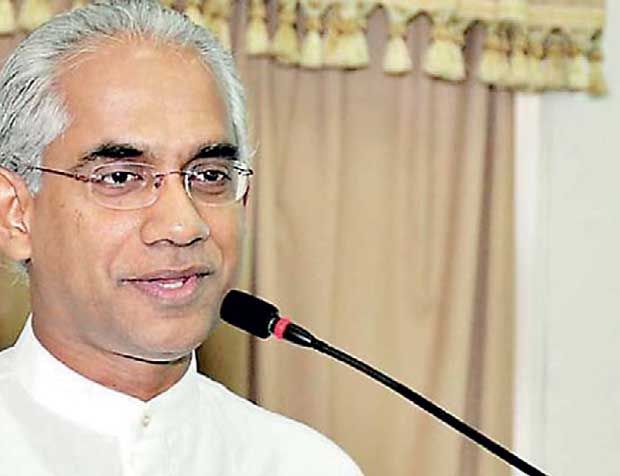19 Jul 2017 - {{hitsCtrl.values.hits}}

By Shabiya Ali Ahlam
The local trade and business landscape will see greater transparency with the implementation of a fully-fledged online payment platform for Sri Lanka Customs that will be launched tomorrow.
Based on a request from the Central Bank and with approval from the Monetary Board, the online payment platform is being implemented by LankaClear, Sri Lanka’s largest payment infrastructure provider, to facilitate payments of Customs declarations.
Although the platform was proposed in early 2016, the project was stalled due to debate between political parties on the selection of the implementing agency. The delayed project picked up pace following the new leadership at the Finance Ministry. The initiative is being executed under the direction of State Minister of Finance Eran Wickramaratne.
Speaking to Mirror Business, Wickramaratne pointed out that the launch of the online payment platform would increase efficiency, transparency and speed of work of the agencies involved.
“By using ICT you take away human interventions and reduce the possibility of corruption. This will be an obvious advantage with the implementation of the new online payment platform,” he opined.
The objective of the initiative is to pave the way for all the banks to be connected to the Customs.
The new platform will extend the payment services to customers of all commercial banks through their own respective banks. Currently it is restricted to be carried out only via the two state banks, Bank of Ceylon (BOC) and People’s Bank.
The platform has been designed to communicate with SL Custom’s ASYCUDA system on one side while the same payment platform will also be the front end for participating banks to liaise with the SL Customs Department.
Customers will be able to directly connect to their respective banks via any channel, such as ATM or over the counter (OTC), to make the required payment to the Customs.
Furthermore, payments will be credited in real time on a 24 x 7 x 365-basis, using the Common Electronic Fund Transfer Switch (CEFTS) to the designated Customs’ bank accounts at BOC and Peoples Bank.
It was shared that LankaClear would provide Sri Lanka Customs with the required payment confirmation details, reports and other requirements that have been agreed upon mutually for reconciliation purposes.
Wickramaratne assured that the settlement of the payments among BOC, Peoples Bank and other commercial banks would be through Central Banks’ Real Time Gross Settlement System (RTGS), which is under the direct regulation and supervision of the monetary watchdog.
With the interbank net settlement system being carried out by the RTGS, it was stressed that all banks must maintain a RTGS accounts with the Central Bank. Non- banking financial institutes that connect to LankaClear must partner with a primary bank who maintains a RTGS account at Central Bank to facilitate the Net settlement.
Moreover, in view of several startup fintech initiatives supported by the Central Bank, the State Minister stressed it has become necessary for the Central Bank to formulate, adopt, and monitor the implementation of a payment system policy for Sri Lanka under Section 5 of the Payment and Settlement Systems Act.
Meanwhile, Wickramaratne said the Central Bank of Sri Lanka should refrain from playing dual roles and must pay greater emphasis on its responsibilities of being only a regulator.
Referring to the ownership of LankaClear, which is Sri Lanka’s largest payment infrastructure provider, of which the Central Bank holds a stake, the State Minister said the ownership must be transferred over to the government.
“The Central Bank is a regulator and the regulator should not own anything. They cannot play the role of the regulator when owning a stake. It’s a conflict. The stake of LankaClear held must ideally be owned by the government,” said Wickramaratne.
However, he acknowledged that the LankaClear’s model of a Public Private Partnership (PPP) has worked well over the years.
Currently the Central Bank, and the two state banks, Bank of Ceylon and Peoples Bank, own 47 percent of the agency, while other commercial banks hold 57 percent of the ownership.
09 Jan 2025 2 hours ago
09 Jan 2025 3 hours ago
09 Jan 2025 6 hours ago
09 Jan 2025 6 hours ago
09 Jan 2025 7 hours ago